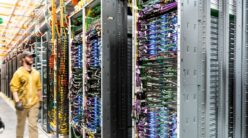The advancement of robotics and artificial intelligence (AI) has sparked intriguing discussions about the future of human work and existence. As technology progresses at an unprecedented pace, the question arises: Can robots truly replace humans?
The Promise of Automation
Robots and AI systems are undeniably revolutionizing various industries, from manufacturing and healthcare to finance and transportation. Their ability to perform tasks with precision, speed, and consistency has led to increased efficiency and productivity in many sectors. With advancements in machine learning and neural networks, robots can even learn from experience and improve their performance over time.
The Scope of Automation
While it’s true that robots can handle repetitive and mundane tasks more efficiently than humans, there are still many areas where they fall short. Tasks that require complex decision-making, creativity, emotional intelligence, and human interaction remain challenging for machines to replicate. Despite significant progress, current AI systems lack the nuanced understanding and contextual awareness that humans possess.
Complementary Roles
Rather than viewing robots as direct competitors to human workers, it’s more productive to see them as collaborators. In many industries, automation complements human labor by handling routine and hazardous tasks, freeing up humans to focus on more complex and value-added activities. Human-robot collaboration can enhance productivity, safety, and innovation, leading to better outcomes for businesses and society as a whole.
Addressing Concerns
The fear of job displacement due to automation is understandable, but history has shown that technological advancements often create new opportunities and industries. While some jobs may indeed become obsolete, new roles will emerge in areas such as robotics engineering, AI programming, and human-robot interaction. Moreover, automation has the potential to improve the quality of work by eliminating dull, dirty, and dangerous tasks, allowing humans to pursue more fulfilling and meaningful endeavors.
Ethical Considerations
As we embrace automation, it’s crucial to address ethical considerations such as data privacy, algorithmic bias, and the impact on societal well-being. Transparency, accountability, and inclusivity should be prioritized in the development and deployment of AI systems. Additionally, efforts should be made to ensure that the benefits of automation are equitably distributed and that measures are in place to support workers who may be displaced by technological advancements.
The Human Advantage
While robots excel in certain domains, humans possess unique qualities that are difficult to replicate in machines. Our ability to empathize, innovate, adapt, and collaborate remains unmatched. Rather than fearing automation, we should harness its potential to augment human capabilities and address pressing challenges such as climate change, healthcare, and education.
Conclusion
In conclusion, while robots and automation technologies are transforming the way we work and live, the idea of them completely replacing humans is a myth. Instead, we should embrace automation as a tool to enhance human potential, improve productivity, and create a better future for all. By leveraging the strengths of both humans and machines, we can unlock new possibilities and usher in an era of unprecedented innovation and progress.







